The integration of technology into various aspects of our daily lives has had profound effects on numerous sectors, including health, finance, and travel. In this article, we will explore how technological advancements have influenced these industries and the ways in which they shape the way we live and interact with the world.
Healthcare: Revolutionized by Technology
In recent years, the healthcare industry has experienced a massive shift due to technology. From electronic health records (EHRs) to telemedicine and AI-driven diagnostics, technology has enhanced both patient care and administrative efficiency.
Telemedicine and Remote Care
One of the most significant innovations in healthcare is telemedicine. Telemedicine allows patients to consult with doctors remotely, using video calls or other digital communication platforms. This has become especially important during the COVID-19 pandemic, as it allowed patients to receive medical advice from the safety of their homes. Moreover, telehealth has opened up access to healthcare in remote and underserved areas where healthcare professionals might be scarce.
Telemedicine has also reduced the strain on healthcare facilities and allowed doctors to focus on more critical cases. The convenience of remote consultations has made it easier for people with chronic illnesses to manage their conditions without frequent hospital visits. By leveraging technology, individuals can now enjoy a higher quality of care and better monitoring of their health, all while saving time and money.
Artificial Intelligence in Diagnostics
Artificial intelligence (AI) is another breakthrough technology that is changing the healthcare sector. AI algorithms are now being used to diagnose diseases more accurately and quickly than human doctors. For example, AI can analyze medical images such as X-rays, MRIs, and CT scans to detect signs of conditions like cancer or heart disease. The accuracy of AI-based diagnostic tools has been shown to match or even exceed that of trained medical professionals.
Machine learning tools can also assist in predicting patient outcomes, leading to more personalized treatment plans. By analyzing a patient’s medical history, genetic data, and other factors, AI can suggest the most effective treatments and medications, thus improving patient care and optimizing medical resources.
The Role of Technology in Finance
The financial sector has also been transformed by technology. The rise of digital banking, blockchain, and financial technologies (FinTech) has significantly changed how people manage their money, invest, and make transactions.
Digital Banking and Mobile Payments
Digital banking has made it easier than ever for individuals and businesses to manage their finances. With mobile apps and online banking platforms, users can perform a wide range of financial tasks, from checking their account balances to transferring money across borders. This shift to digital platforms has reduced the need for physical bank branches, making banking more accessible and efficient.
Additionally, mobile payment systems such as PayPal, Apple Pay, and Google Pay have simplified how we pay for goods and services. These systems allow users to make secure payments using their smartphones or other devices, eliminating the need for physical credit cards or cash.
Blockchain and Cryptocurrency
Blockchain technology has introduced a new level of security and transparency in financial transactions. By providing a decentralized and immutable ledger, blockchain ensures that transactions cannot be tampered with or altered. This has made it an attractive option for various applications, such as cross-border payments, supply chain management, and even voting systems.
Cryptocurrencies, such as Bitcoin and Ethereum, are also gaining popularity as an alternative form of investment and payment. These digital currencies are not controlled by any central authority, offering a level of independence from traditional financial systems. The rise of cryptocurrencies has led to the creation of new investment opportunities and has even given rise to a whole new industry of crypto-trading platforms and decentralized finance (DeFi) systems.
Technology’s Impact on Travel
Technology has made significant strides in the travel and tourism industry, enhancing the way people plan, book, and experience their trips. From the convenience of online booking platforms to the use of virtual reality (VR) for travel experiences, technology is shaping the future of tourism.
Online Travel Booking and AI-Powered Recommendations
Gone are the days when travelers had to rely on travel agents to book flights, hotels, and tours. Online travel agencies (OTAs) like Expedia, Booking.com, and Airbnb have made it easier for individuals to plan their vacations from the comfort of their homes. These platforms offer a wide range of options, including flights, accommodations, and activities, allowing users to customize their travel itineraries based on their preferences.
Moreover, AI-powered recommendation systems are becoming increasingly sophisticated. These systems analyze a user’s past travel behavior, preferences, and even social media activity to suggest tailored travel experiences. By utilizing Bayar4D Daftar , travelers can discover new destinations, activities, and restaurants that match their interests.
Virtual Reality (VR) and Augmented Reality (AR)
Virtual reality (VR) and augmented reality (AR) have also made their way into the travel industry, offering immersive experiences that were once unimaginable. VR allows users to experience a destination without leaving their home. Whether it’s taking a virtual tour of the Eiffel Tower or exploring the Great Wall of China, VR offers a unique way for travelers to preview destinations before making travel decisions.
On the other hand, augmented reality (AR) is enhancing the physical travel experience by providing real-time information about landmarks, restaurants, and points of interest. AR applications can be used on smartphones or AR glasses to overlay useful information onto the user’s environment, making it easier to navigate and explore new places.
Conclusion: The Future of Technology in Health, Finance, and Travel
Technology has undoubtedly transformed health, finance, and travel, bringing with it numerous benefits. In healthcare, telemedicine and AI are improving patient outcomes and expanding access to care. In finance, digital banking, mobile payments, and blockchain are making financial transactions faster, more secure, and more accessible. Meanwhile, in the travel industry, online booking platforms and immersive VR/AR experiences are changing how we plan and enjoy our vacations.
As technology continues to evolve, it is likely that these sectors will see even more innovations that improve efficiency, accessibility, and user experience. The future of health, finance, and travel will undoubtedly be shaped by the ongoing advancements in technology, creating new opportunities and challenges for both individuals and industries alike.
The Impact of Technology on Health, Finance, and Travel: A Comprehensive Overview

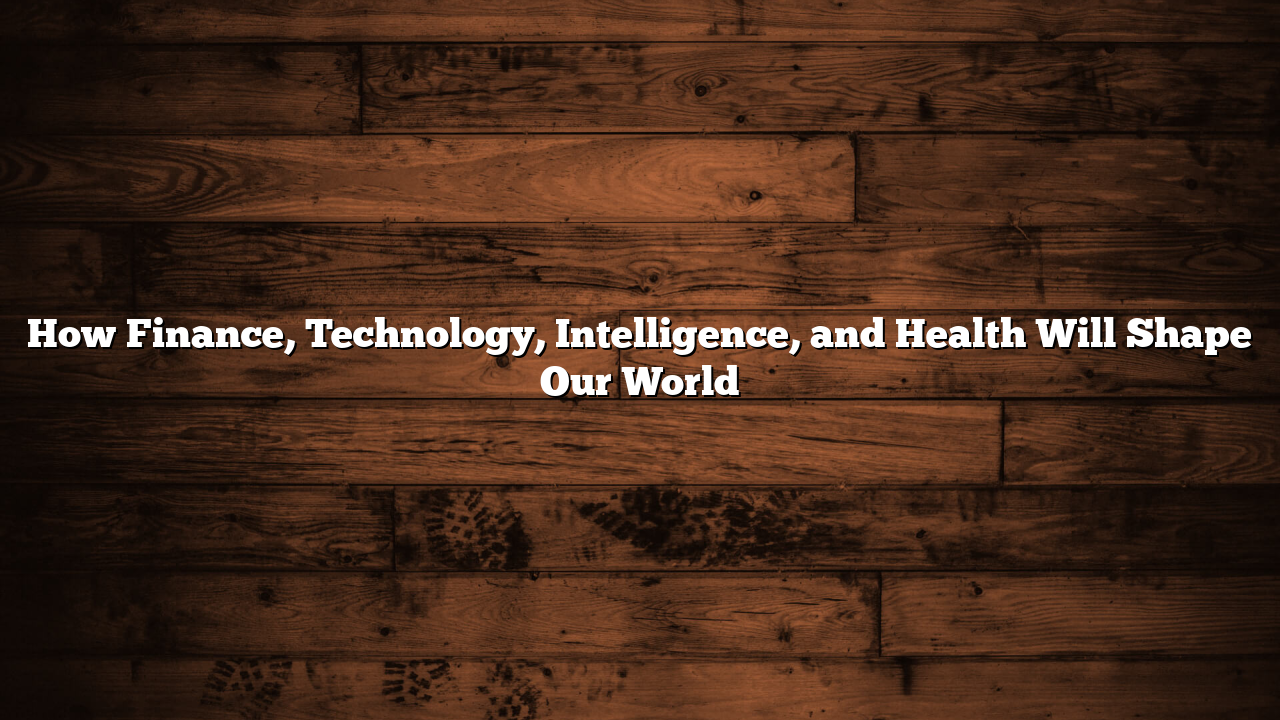
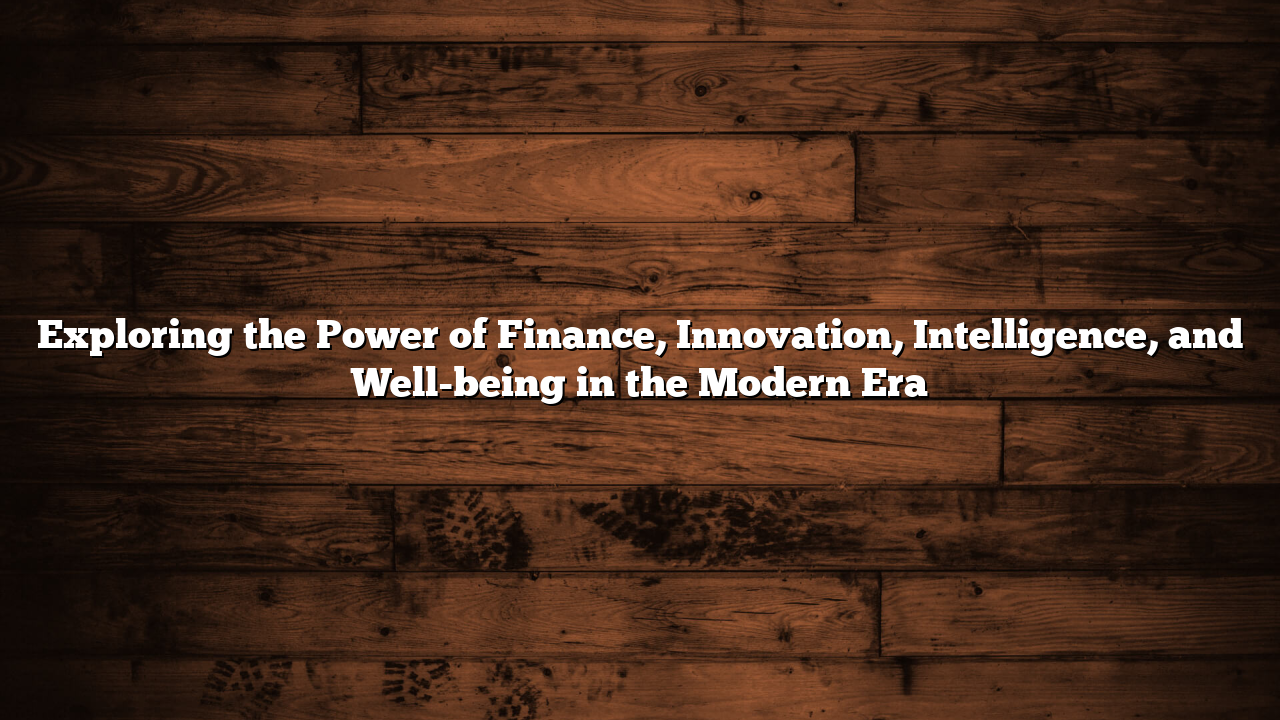
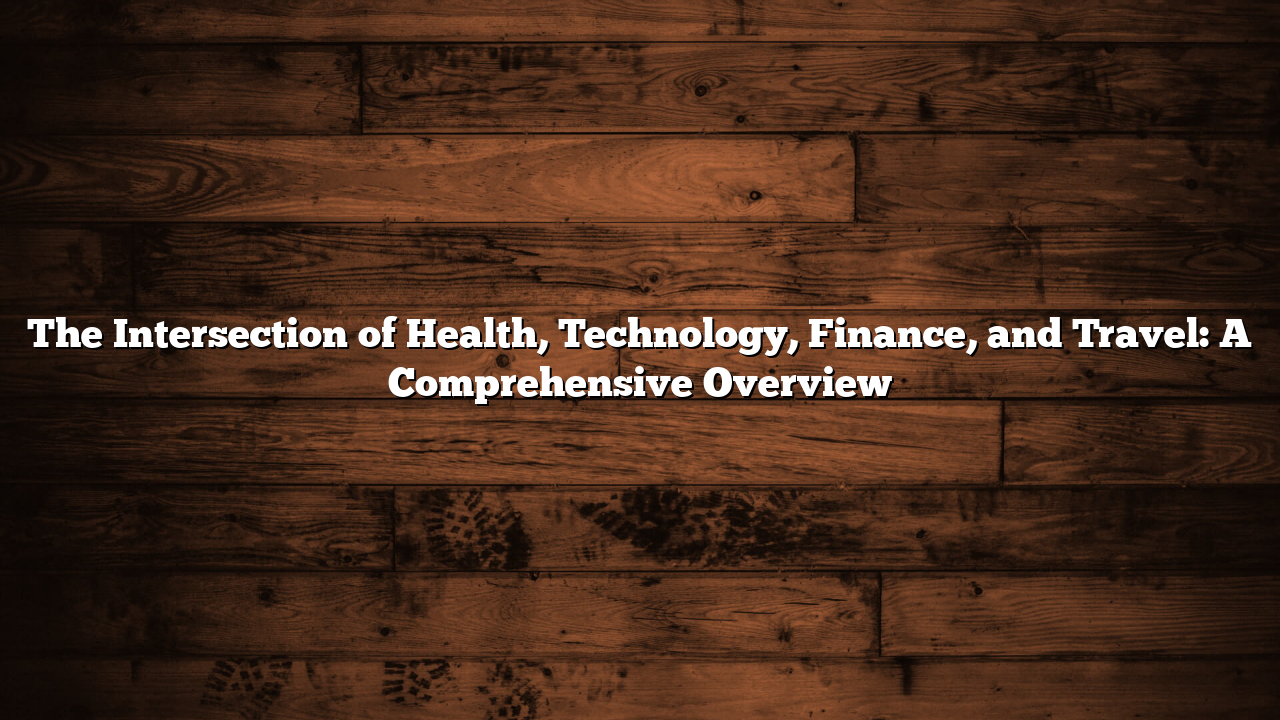
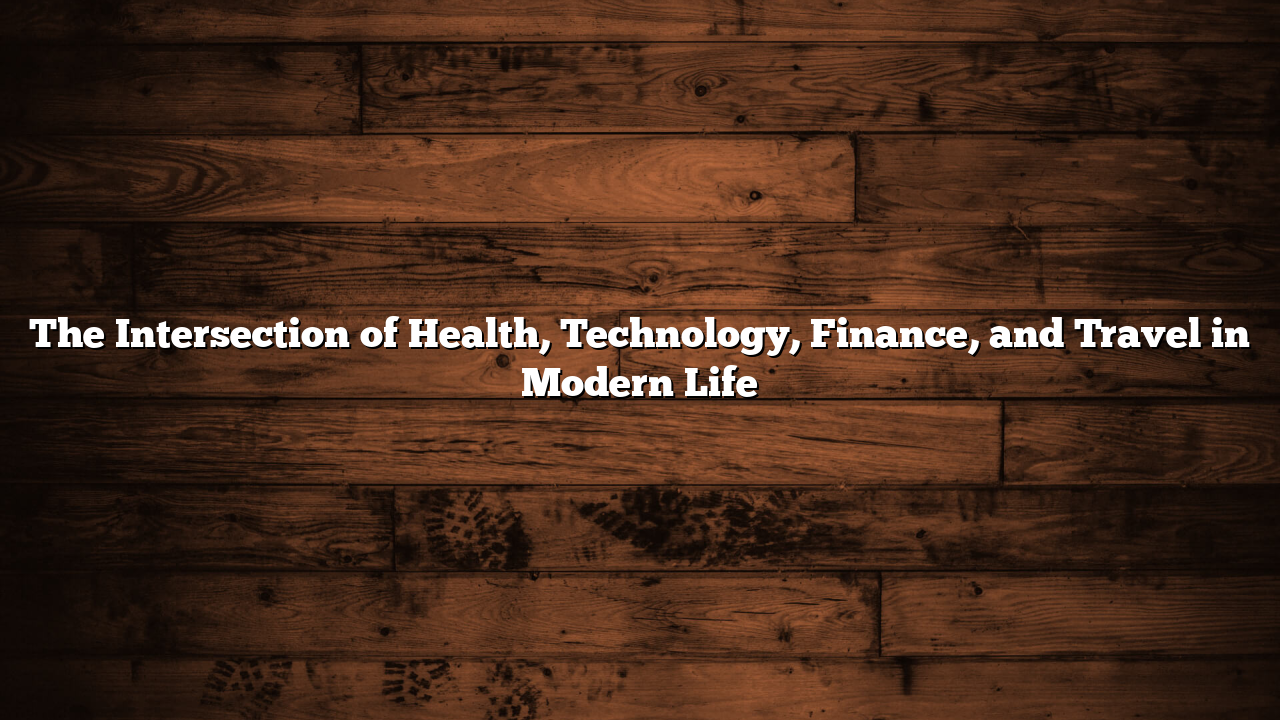
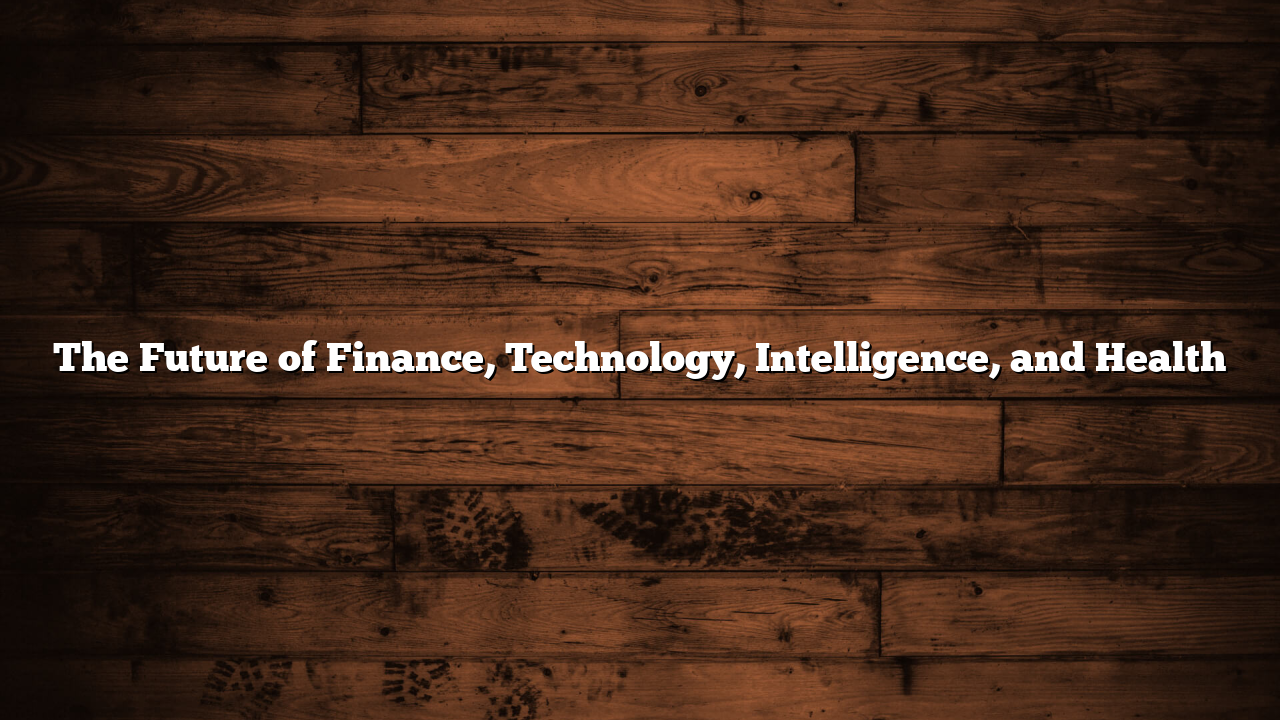
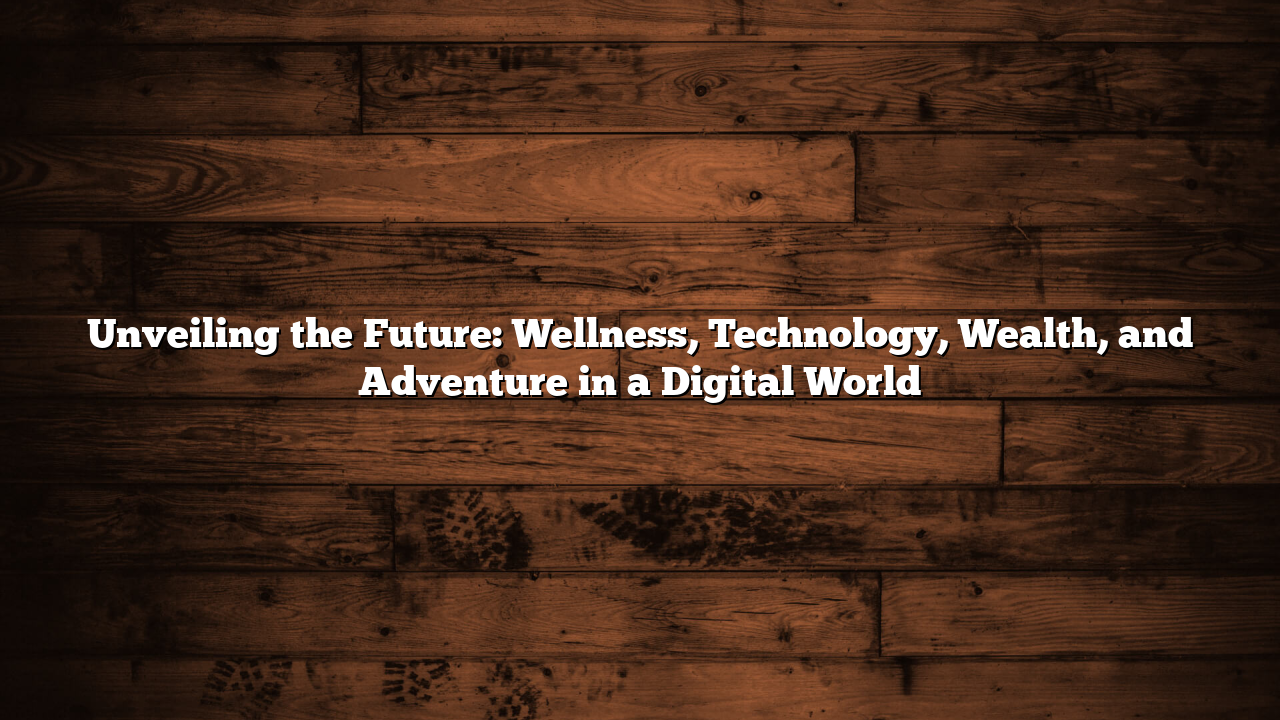




Leave a Reply